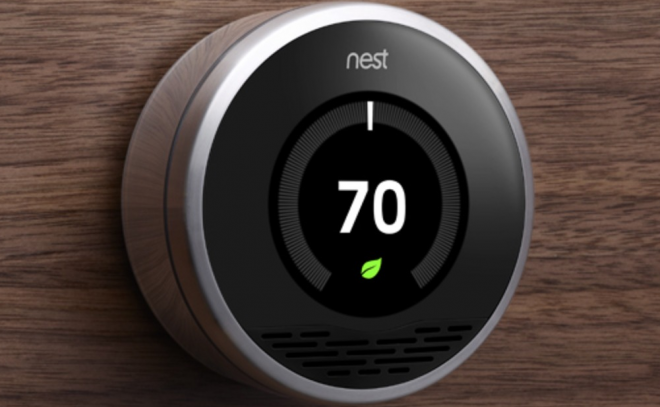
Every home should feel like an eco oasis, and it can be done by saving energy. Here’s how it can be done using AI.
How AI Is Making Buildings Smart and Intelligent
One of the most important components of smart buildings is AI. Without it, a building can hardly be considered intelligent since, without it, owners and managers would be unable to provide the safest and most comfortable environments possible for their tenants.
In order to collect data from many sources, a building platform needs first to acquire information from the building management system and other smart technologies. One good example is Infogrid. It should then feed this data into an adaptable, scalable cloud-based platform that standardizes the data and saves it safely. However, that does not yet qualify as a smart building.
The actual innovation occurs when using a platform with built-in AI. By integrating and enhancing intelligence throughout a building or estate, these technologies enable better building operation for its occupants. This includes modeling building and equipment performance as well as accounting for data from the building’s systems and outside input like weather or traffic.
In turn, this enables machine learning to continuously optimize building areas to cut down on energy use and waste.
For instance, energy savings can be achieved by automatically reducing electricity use in low-traffic areas, by watching sensors around a facility, and by making decisions in real-time based on the data. This helps the building’s bottom line and the environment while ensuring that its people are constantly comfortable.
The following are ways in which the use of AI influences the intelligence of buildings.
Realizing smart and sustainable construction goals with AI in buildings
Large amounts of useful data are gathered from every nook and cranny of a structure with the aid of inexpensive, easily accessible, and sophisticated IoT devices. Data collection has the potential to provide managers with useful operational insights for making decisions if it is properly examined and processed.
AI also plays a big part in turning raw data into usable intelligence. The information acquired would be useless or senseless without this remarkable technology. Building managers may increase asset utilization, increase tenant comfort, and ensure operational efficiency to a greater extent with AI. This is exactly what you get by using Infogrid.
Building maintenance
Everybody wants the areas of their buildings to be hygienic, maintained, and secure. Building managers may guarantee that the buildings are consistently clean and secure by partnering with expert cleaning companies.
Every nook and cranny of a building can be captured in detail by sensors and cameras. When this data is loaded into an AI tool, it can alert building management to areas that need immediate cleaning, improving the experience for residents.
Management of water
90% of our time is spent indoors. Consider the volume of water we use each day for a variety of uses. An average American household uses 300 gallons of water daily at home, according to a ballpark estimate. Consider how much water is used on a global scale.
Resources for water are running out. So, it’s crucial to think about how much water we use and take the necessary steps to cut back. Therefore, building managers need to keep a tight eye on how much water each family or office is using.
However, it is extremely impossible to manually keep track of water usage. Here, AI can be quite helpful.
Parking support
In today’s fast-paced world, parking is a big problem for many. Finding a parking spot might take a significant amount of time when visiting any new location. People would rather not interact with other people unless it is absolutely essential.
AI may be very important in these situations. Parking lots can be studied using the pressure sensors on the ground and the several cameras nearby. When fed with this information, an AI parking tool will analyze parking spot utilization and provide comprehensive information on vacant spaces.
Visitors may access detailed information about available parking spaces with just a few taps on their smartphones. In fact, the app will direct users to the proper parking space. Such support will enhance the experience of tourists while also reducing energy use. That is the strength of AI and smart structures.
Detection of Fault
To maintain safety, buildings must be continuously checked for problems and anomalies. Building managers require a committed group of experts to oversee building upkeep in order to do this.
Nevertheless, depending on how complicated the buildings are, this could turn into a hassle. AI has the capacity to continuously process data from a variety of sources. The AI tool will examine inputs, look for trends, and uncover undiscovered information about any problem or technical issue.
For instance, sensors and cameras installed in the lift will record data regarding the lift’s operation. An AI tool will then evaluate the data to determine whether the lift is operating properly or is likely to malfunction. Then, proactive corrective measures can be implemented before the lift ceases to work properly.
Occupancy Monitoring
The use of AI helps to build owners track how people use their building. As a result, you, as the building owner gets to create a safer working environment for your staff. Infogrid is one of the best platforms in the market for the occupancy monitoring system.
Putting AI to use for you

The most crucial factor in smart building technologies is that they function as intended. Every building manager, operations executive, or health and safety officer may connect to the platform and make decisions based on real-time data, which is why AI is such a powerful tool.
This results from building a scalable cloud platform that assists in monitoring and taking action on anything from HVAC to access control to occupant experience to fire detection. However, anyone can use AI; it’s not just people who are in charge of the building’s operations.
Nowadays, many smart buildings give their technology to every resident, whether they work in an office, are teachers, CEOs, or nurses. With the touch of a finger, visitors may reserve conference spaces or operating suites, get directions from A to B, or alert maintenance when something is amiss with smartphone apps that are specific to your building or estate.
By implementing the right AI technologies in the right ways, building management firms may be transformed, becoming more aligned with tenant organizations’ businesses, providing the experiences that tenants need and want, and supporting their own operations and financial health.
In addition, making buildings smarter – or wiser overall – will help us overcome some of our most difficult obstacles, particularly the strict net-zero and sustainability standards that enterprises must now meet.



